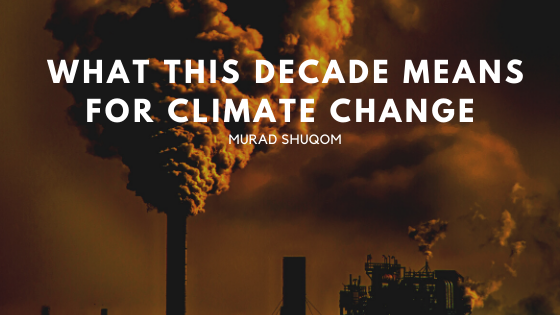There is no doubt that we are in a time of great upheaval. People all over the world are heading the warnings from the scientific community and recognizing that our current economic and political systems have produced an unsustainable situation. The time for action is upon us. This decade is crucial to the future of this planet and all of the life forms.
The goal is ambitious. Cut the world’s greenhouse gas emissions in half by 2030 and total emissions to net-zero by the year 2050. To accomplish this goal, world governments would need to cut emissions by 7.6% every year during the 2020s. Typically, this kind of drop in emissions subsequently starts a great disaster such as war, plague, or recession. A prime example of this is the slump that occurred after the fall of the Soviet Union in 1991. However, in recent years we have seen a global increase in emissions, with the curve only beginning to flatten in the last year.
This doesn’t mean that all is lost or that we are on a fool’s errand. With significant investment and societal shifts in how we think about development, we can meet our targets in the upcoming decade in time for our 2030 benchmark. Although some governments have resisted the call to action, there has already been an encouraging cultural and economic shift. Increasingly, voices for change have challenged people in power to develop and implement sustainable initiatives. Individuals are making more environmentally conscious choices about everything, from what to eat to where to live.
Technology is helping. The cost of solar panels has fallen by 90% and has proliferated the skyline in many cities across the world. Innovations in energy, water usage, agriculture, and transportation have all made reaching the goals set up at the UN summit at Glasgow. The stumbling block is not a lack of expertise or resources, but a lack of political will to follow through.
With key nations like the United States balking at the process, there will be setbacks and failures. However, the prospect of not getting everything right the first time is not a reason to give up or give in. We may not reach our goals, but even missing the mark will put the global community in a better position than if we had given in to apathy.

